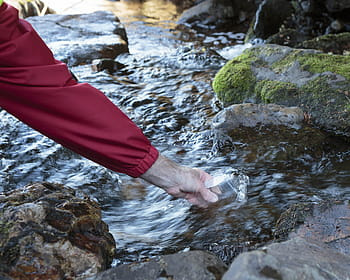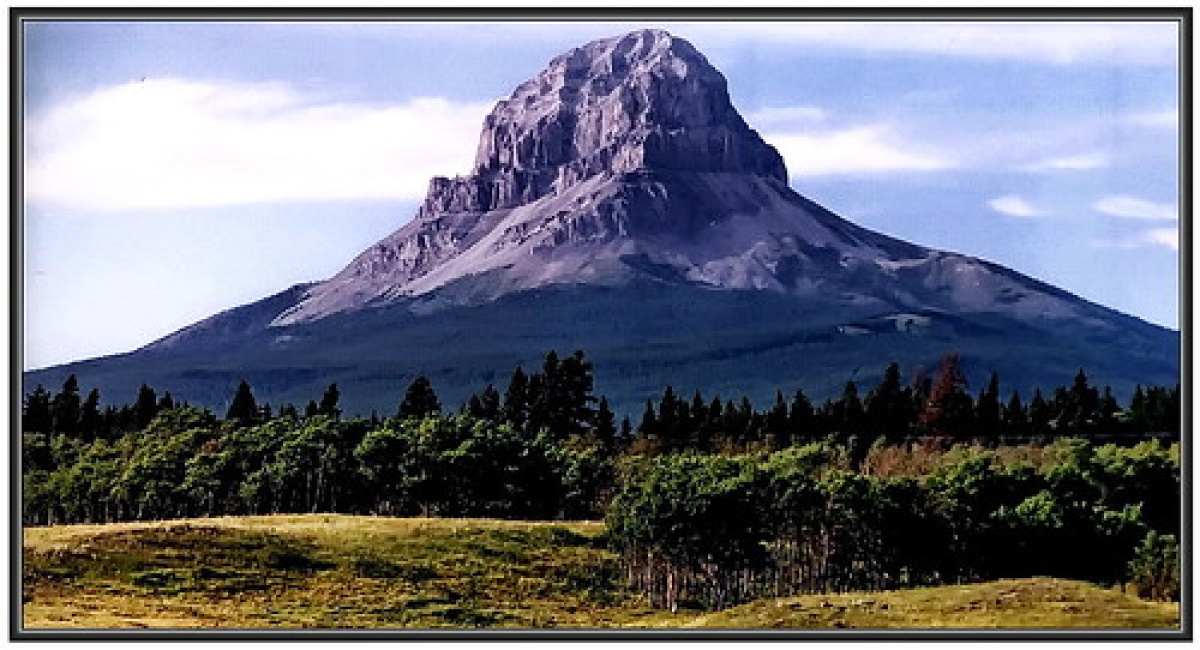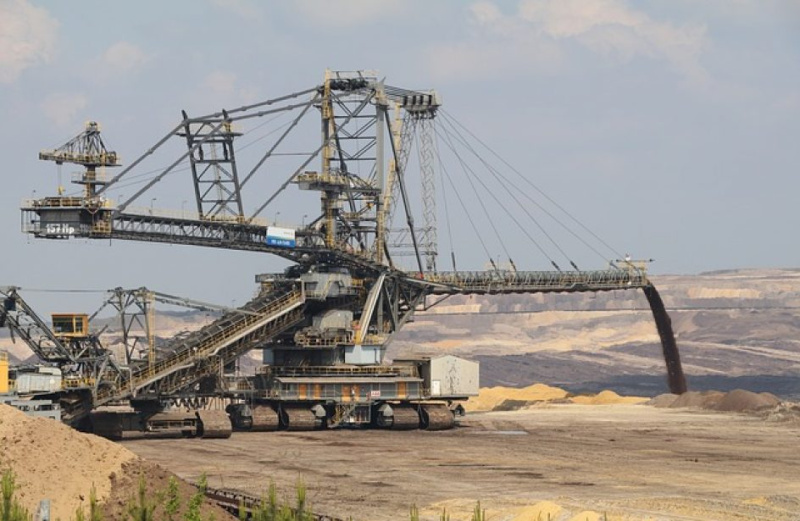By Celia Shea, Communications
“The labour movement and environmentalism have always been a natural fit,” says AUPE Vice-President Mike Dempsey, undoing in one breath the old Conservative myth that strong ecological protections are a zero-sum game for workers.
“Most of our GOA folks in natural resources get into this line of work and join the union precisely because they want to improve the balance between resource extraction and resource protection,” he adds.
It’s big business that’s only concerned with “extracting to export.” By ravaging the earth to meet quotas that will help them profit on the global market, they also send value-adding jobs to places with worse labour laws and lower environmental protections.
“With an eye for stricter environmental rules, we do the opposite and generate jobs,” Dempsey explains. “Just look at all the environmental monitoring positions in the private and public sectors – the job opportunities are endless if we follow the science.”
AUPE’s Local 5 and Local 012 members know the value of this work firsthand. By carving paths through Alberta’s backwoods, mountains, and other hard-to-reach places, members like them spend 2 to 3 days each week in the field expanding the labour movement’s foothold. In the process, they not only bring justice to working people in our most underpopulated regions, but also to the animals, birds, water and lands that occupy their outdoor offices. Environmental monitoring is critical work, but in the last decade Alberta’s governments have made it hard to do.
“We generate knowledge, and they don’t value that,” says one member who wishes to remain anonymous. She works in the Resource Stewardship Division of the Government of Alberta and believes her work “would be a prime candidate for the UCP to cut and contract-out,” but not because privatization saves money; rather, because environmental monitoring disrupts the UCP’s corporate agenda.
With an eye for stricter environmental rules, we do the opposite and generate jobs. Just look at all the environmental monitoring positions in the private and public sectors – the job opportunities are endless if we follow the science.

One of the most critical arms of the Resource Stewardship Division are the water shed monitoring staff who track trends in Alberta’s lakes, rivers, and tributaries, monitoring the health of these life sources. Many AUPE members who work in this department function in small teams, some as small as 10 people. Scattered across Alberta, they are growing a decades-old body of research by collecting water samples from different provincial landscapes and working with what’s called “baseline ambient data,” which is the best tool scientists have to determine what’s “normal” for a particular body of water.
Cumulative results from tests accrued over 50 years on the same lake or river help technicians and their scientific counterparts to determine safe thresholds for different chemicals, so that when they go into the field to collect new samples, they know what variation is acceptable before Albertans should be worried.
If you don’t have any feet on the ground in these out-of-the-way locations, then you just don’t know what’s going on, and it’s easier to ram through various policies.
Sometimes the workers do encounter a problem – maybe a spike in mercury or an algal bloom – that warrants a more intensive, short-term study. Such problems should prompt one of the highly specialized scientists to write a research proposal that an AUPE tech would support logistically to bring the study to life. But increasingly, they’re being forced to toss new projects because they don’t have the bandwidth to complete them. Understaffing is a major problem.
One member says that by targeting small teams of GOA specialists who might be the only ones measuring environment indicators in a certain area, Premier Kenney is trying “to dismantle the ways we collect knowledge. If you don’t have any feet on the ground in these out-of-the-way locations, then you just don’t know what’s going on, and it’s easier to ram through various policies.”
They know our water techs and scientists are seriously understaffed, and they’re trying to exploit that rather than fix the problem.
Kenney has ignored medical experts before. He’s also silenced opposition by ramming an anti-protest bill through the legislature, and on more than one occasion, skipped public consultation to speed his pet projects to completion. Just look at the RAPID response wage increase ruse. Back in 2019, Kenney’s then-Minister of Justice promised a pay raise to the law enforcement members who would have to absorb additional, riskier duties to accommodate the RAPID plan, but the UCP didn’t fulfill its promise.
Now, it seems that the premier is quietly overwhelming scientists so they can’t deliver evidence that looks bad for industry. For instance, the GOA has conveniently left the water-monitoring sites empty along the waters that run through their proposed Grassy Mountain Mining project, even though thousands of Albertans are raising concerns about the harm a mine could inflict on the Crowsnest River and Oldman Headwaters.


The latter gives water to several communities, as well as to drought-risk ecosystems and important farmlands. Mines suck water from the tributary, syphoning it away from Albertans’ taps into the metals-extraction pit that spits toxic selenium back into the ecosystem. One non-profit called the Oldman Watershed Council worries that data on the Crowsnest Watershed and groundwater system is seriously lacking.
“The UCP are exploiting a blind spot, and widening holes in the scientific literature,” says Dempsey. “They know our water techs and scientists are seriously understaffed, and they’re trying to exploit that rather than fix the problem.”
And Alberta’s aquatic stewards aren’t the only team of outdoors experts the UCP are draining of talent. Budget 2020 slashed and burned Forestry and Agriculture to a dustbowl by chain-sawing 57 full-time AUPE positions in Forestry, many in wildfire management and mountain pine beetle control. Together, these members ensure our crownlands and forests capture more carbon than they leak, so they don’t contribute to climate-change related disasters.
Agriculture hasn’t fared any better under the UCP. When he cut around $22-million from the division’s budget, Minister Devin Dreeshan laid-off several specialists and uprooted important, independent research that benefits farmers and prioritizes nutrient management, soil conservation, irrigation and water management. While the minister has diverted this public money into university-based research projects, the scope of these studies is small and industry-focused. One anonymous AUPE member in technical and field services says these niche projects are not a substitute for government research.
“Universities are fantastic partners to have, and it’s good to draw on their knowledge to do something highly specific, if you, say, want an expert in sediment or something,” they say, “But no researcher, no professor is going to run a 50-year study on just the quality of a river or something else – that’s not a publishable opportunity. The only people who are going to keep those kinds of things are government. In my opinion, we’re a much better steward of that info.”
Their comment speaks to the rich diversity inherent in the public service. Across sectors, AUPE members strengthen each other’s work by honing their own unique skillset on the frontlines. Austerity governments paint the public-sector as one homogenous blob. By doing so, they hide the craters their job-killing agendas gouge into the public service when they target specific positions, divisions and ministries.
For instance, a water monitoring group won’t have 5 PhDs in Hydrogeology on their team; they’ll have one. If that person goes, they leave a huge knowledge gap that cannot be filled by someone else. When the UCP lays-off one government scientist, they discard a whole skillset, and in some cases a lifetime of work. This is true on the tech side too.
When one expert leaves, “you can only pull from your existing group of techs, who might have helped out with something like that before, but that’s not their bread and butter. And then you pull them from whatever their job was, so now that’s lacking,” says the member in Resource Stewardship Division.
no researcher, no professor is going to run a 50-year study on just the quality of a river or something else – that’s not a publishable opportunity. The only people who are going to keep those kinds of things are government. In my opinion, we’re a much better steward of that info.
Unfortunately, the UCP scour departments like theirs to hunt for layoffs and attrition-opportunities. Dempsey says, “the government think our folks in the field are easy pickings because their working groups are small and ‘out-of-the-way'. Plus, members are rarely inside, sharing a coffee break and talking strategy. This is just one of the reasons our GOA members are working so hard right now to establish worksite contacts at every point in the province, so members in remote areas can stay connected to our larger fightback campaign against their boss.”
By establishing a strong union presence in all parts of the province, AUPE members also protect our forests, mountains, waterways, and biodiversity, which are priorities when the UCP is targeting environmentally focused jobs.
Corporations and their allies in caucus care about the environment about as much as they care about labour, and working-class neighbourhoods are often the target location for industry’s most environmentally toxic operations. As a result, low-income earners are generally more vulnerable to toxic air and water, so, it only makes sense that the working-class would use their jobs and unionism to fight pollution and unsustainable practices.
Want to join your fellow members and fight for ecojustice in Alberta? Check out the AUPE Environmental Committee's latest call-to-action to stop the UCP from pursuing the grassy mountain coal project and other mountain-top removal operations.


